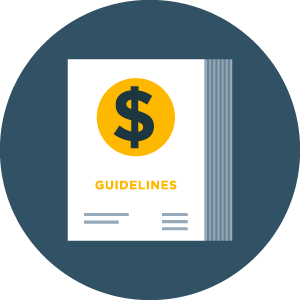Talk to Sales: (401) 200-6026
Are you confident in the fact that your dealership has done everything possible to pass an unexpected dealership audit?
You’re going about your day and then out of nowhere your bank’s floorplan representative pays you a visit. Or maybe it’s the IRS or state’s Department of Transportation. Either way, a dealership audit wasn’t what you planned for today. It’s nervewracking, but there’s no choice but to stop what you’re doing and make sure everything goes as smoothly as possible. After all, a lot rides on the success of these audits.
When dealerships fail to make compliance a priority, they put themselves at risk for crippling penalties and other obstacles that make it nearly impossible to stay in business. There’s the chance of losing your relationship with floorplan companies or even worse, your dealer license.
Confidence comes with preparation.
5 tips to ensure the next surprise audit goes smoothly
1. Monitor inventory stringently
It’s not uncommon for an auditor to want to make a few calls to confirm the whereabouts of missing inventory. Be prepared by keeping a detailed list of any vehicles that leave the property. Not only is this helpful for audit purposes, but it also helps dealerships enhance inventory security.
Create a spreadsheet and include the following information:
- Vehicle stock number
- Year, make, model, and complete VIN
- Vehicle location and contact information.
- The reason the vehicle has left the dealership. (Repairs, test drive, delivery in process.)
- Dealership employee who is working with the customer or repair facility.
2. Understand payoff guidelines
Each financial institution has guidelines as to when a vehicle needs to be paid off their floorplan. Some banks require payment three days after delivery for cash deals and seven days for finance, while some choose to have a flat three-day rule. Some may even want you to go by the date of complete payment, versus the date on the bill of sale. Be clear on your bank’s rules for payoffs to avoid confusion and late fees.
3. Track vehicle titles
Rules vary by state, but most financial institutions require a vehicle title to add a unit to the floorplan. Even though the auditor is primarily tracking a dealer’s physical inventory, some units may have been purchased at auction by floorplan funding. It’s up to the dealer to follow the receipt of each title to avoid any complications during an audit. Title tracking is also essential for finance and DOT compliance for many states.
The dealer title clerk can help prevent title dilemmas by:
- Storing all titles in a fire and waterproof safe.
- Limiting access to essential employees and keep a sheet to track the location of all missing titles.
- Verifying each vehicle has the correct title at the beginning or end of each month.
- Keeping a list of cars waiting for titles with details specifying:
- if it’s a trade payoff, wholesale, or auction purchase
- the date of purchase or payoff
- the name of the financial institution, auction, or seller
- Vehicle details such as stock number, year, make and model
- Any notes regarding the arrival of the title
4. Sustain compliance education
Ignorance doesn’t protect dealers from legal repercussions. It’s up to dealership managers to keep their teams up to date on any changes in processes or laws. Following organizations such as NIADA can be very beneficial in enhancing dealer compliance.
5. Be sure to make training a priority, especially when it comes to these regulations:
Form 8300 reporting: Not only do you have to report cash transactions over ten thousand dollars, but it’s also required by the IRS to keep a copy of all checks related to a sold vehicle inside the deal. It’s also important to record the car buyer’s social security number, occupation, and the number of bills they paid with categorized by monetary denomination. This information should be filed in each deal, but also kept in a yearly folder for when all the forms have to be submitted to the IRS.
Red Flags Rule: Car dealerships are required to have written policies in place to prevent identity theft. This law applies to all departments, primarily sales and finance because of the volume of customer information they handle. Penalties run up to $3500 per violation, which is preventable by taking care to safeguard client information digitally or in locked cabinets.
Auditors aren’t bad people, and when they see dealers working hard to stay educated and organized they’re more likely to help out when a situation emerges. Take the time to be mindful of compliance, and you’ll tackle every surprise audit with total confidence.
-
Interested in an Affordable, Full-Featured Auto Dealer CRM?
Schedule an AutoRaptor Demo Now!





